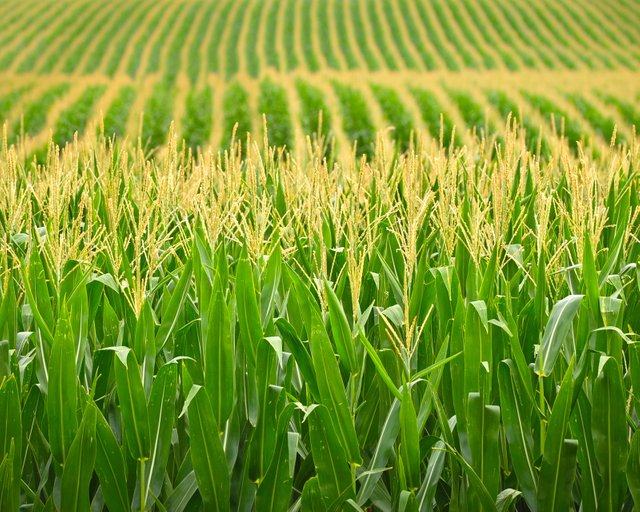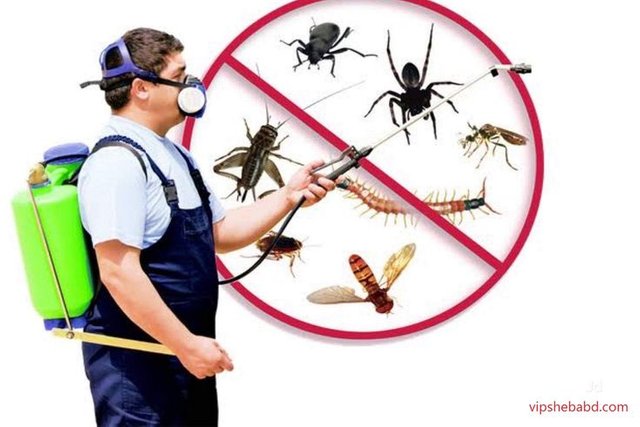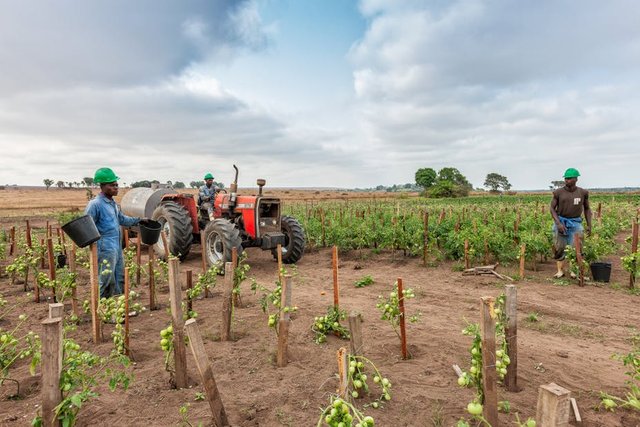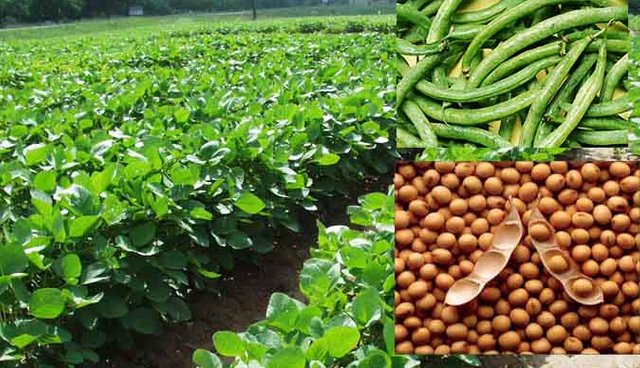Creative Writing Contest Vol. 19 | Farming: How has the quality and quantity of the crops grown in your community changed over time? @kataali
Hello fellow steemians in the Steem Cameroon Community and other Communities in the world 👋, I hope you are doing well. My name is Hasana and @kataali on steemit.
Thank you so much @steemcameroon and @thegreens for organizing this educative, interesting and amazing contest.
A crop is a plant that may be produced and harvested in large quantities for profit or food. Crops can also be refer to either the harvested portions or a refined version of the harvest. The majority of crops are grown in agriculture or aquaculture.

source
The principal crops can be divided into four categories depending on how they are used.
- Horticulture crops (Fruits and Vegetables)
- Food Crops (Wheat, Maize, Rice, Millets and Pulses etc.)
- Cash Crops (Sugarcane, Tobacco, Cotton, Jute and Oilseeds etc.)
- Plantation Crops (Coffee, Coconut, Tea, and Rubber etc.)
I lived in the Northern region of Ghana were Agricultural is our main source of livelihood and survival.
The major crops grown in my community include maize, plantain, cassava, yam, cocoyam, cotton, tobacco, groundnut, tomato, pepper, eggplant, cowpea and beans.

Over the last 50 years, Ghana has changed dramatically. Farm equipment has grown in size, speed, and productivity as a result of technological advancements, allowing for more efficient cultivation of more land. Seed, irrigation, and fertilizers have all improved dramatically, allowing farmers to enhance harvests. Agriculture is now in the midst of yet another transformation, with data and connection at its core. Artificial intelligence, analytics, linked sensors, and other developing technologies have the potential to boost yields, enhance water and other input efficiency, and improve sustainability and resilience in crop and animal husbandry.
Our demand for food is growing on daily basis due to the massive increased in our population. Therefore, the quality and quantity of crops grown in our communities has also change.

HOW HAS THE QUALITY AND QUANTITY OF THE CROPS IN MY COMMUNITY CHANGED OVER TIME?
Technology plays a vital royal in the Agricultural sector of Ghana , which has led to changes in the quality and quantity of crops in my Community.
Farms have evolved dramatically during the previous 50 years. Farms are larger, yields are higher , less manual labor is required, the quality and nutritional value of crops have been improved, and all these are possible due to technology.
The ways by which the quality and quantity of crops has changed over time in my Community include;

Crop genetics and pest control
The concept of improving plant genetics, like livestock breeding, is not new. Plant selection and breeding strategies have been employed by farmers and scientists to increase agricultural output for many years. Plant breeders have sought to improve germplasm in order to provide seeds with the optimal combination of traits for certain soil and weather conditions.
Plant breeders today utilize a combination of traditional and modern techniques to improve plants. Marker assisted breeding, which helps speed up the time it takes to achieve the desired improvement, and genetic engineering are examples of modern breeding procedures (GE). Insect resistance, drought tolerance, and other traits of plants can all be improved with GE technology.

Mechanization and labor.
The greatest major impact on how farmers cultivate and produces crops and has most likely been improved agricultural equipment. Tractors, planters, and combines are all significantly larger and more efficient. And all these plays vital role in the quality and quantity of crops in my Community. Farmers have been able to produce more with less effort because to these and other technology.

Specialization
Farms have become even more specialized in recent years. In the olding days, most farmers used to cultivate different kinds of crops on the same piece of land but as for now, most farmers normally cultivate only one type of crop and concentrate on a single growth stage. Farms looked like those in children's stories when my grandparents were my age. On their farm, they grew a little bit of everything. They farmed 160 acres of grain and hay, had a few cows, laying hens, and pigs, and ate from my grandmother's enormous garden to feed their family. Their farm has evolved over time. They focussed their efforts to make the most of their investments in tractors and better livestock facilities as they invested in them. They sold a lot of animals and concentrated on hogs, corn, and soybeans.
Thank you for reading 🙏.
Thanks to @steem-cameroon and @thegreens for organizing such an amazing contest.



Great writeup. Best of luck okay
Hi, @kataali,
Your post has been supported by @nattybongo from the Steem Greeter Team.
Hello @kataali,
You have received upvote for your achievement 1 tasks. Best of Luck
Thank you @nattybongo 🙏
I love this well detailed explanation, well done
Thank you
The is a beautiful write-up and reading through it, I feel like there is a lot of industrial farming going on around you, in your community. Is the case of the local reality around you?
It's great to use free images from copyright-free websites but if lots of industrial farming is going on around you then you, why don't you use local pictures. Your creative writing was excellent but it read more like an academic presentation and I didn't really get a touch of the local reality at the grassroots or community level.
Thank you very much @thegreens, I will put in my best to score a higher mark next time and I look forward to learning more from you.